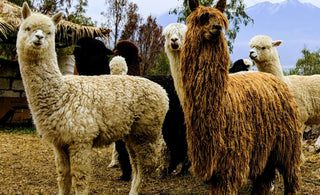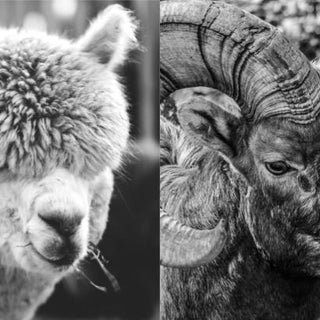Free Range Alpacas
Alpacas thrive - and produce more wool - in their natural environment, so being able to roam free in the mountains is key.
Alpacas thrive - and produce more wool - in their natural environment, so being able to roam free in the mountains is key.


ALPACA or MERINO WHICH WOOL IS BETTER IN COOLING, WICKING, AND WARMTH INSULATION 1. How can the Alpaca wool be cooling if they don’t absorb any moisture? Alpaca fibres have...
Your cart is currently empty.
Start Shopping